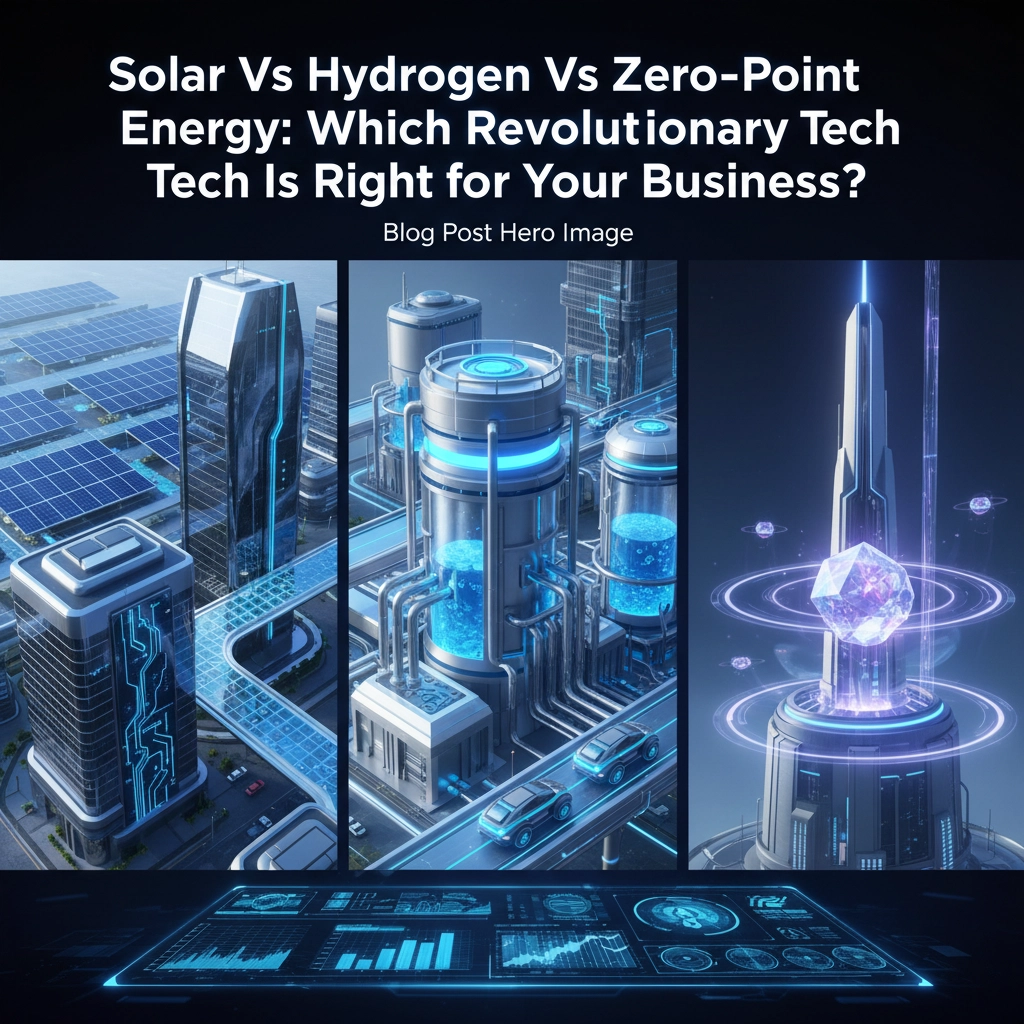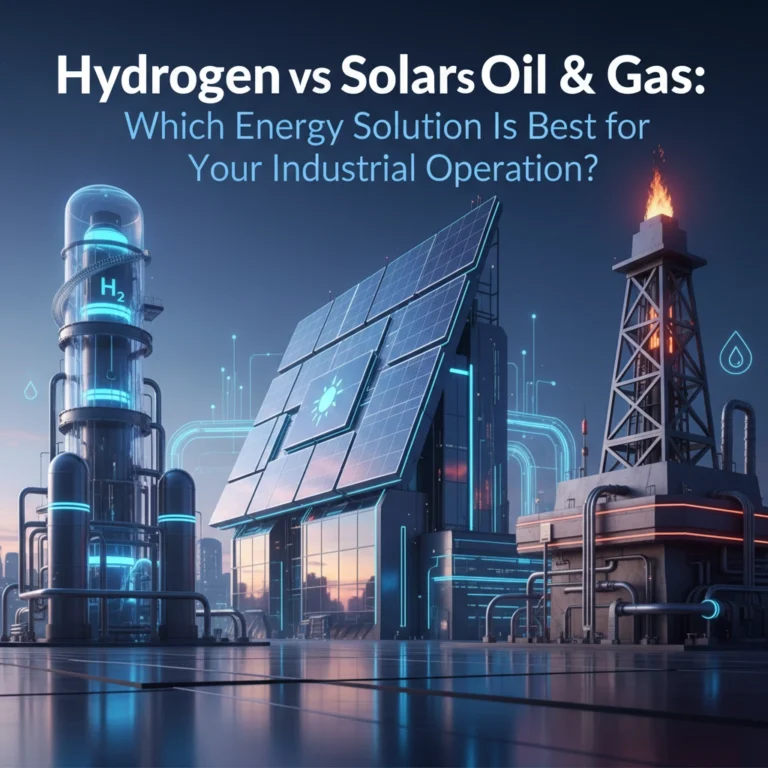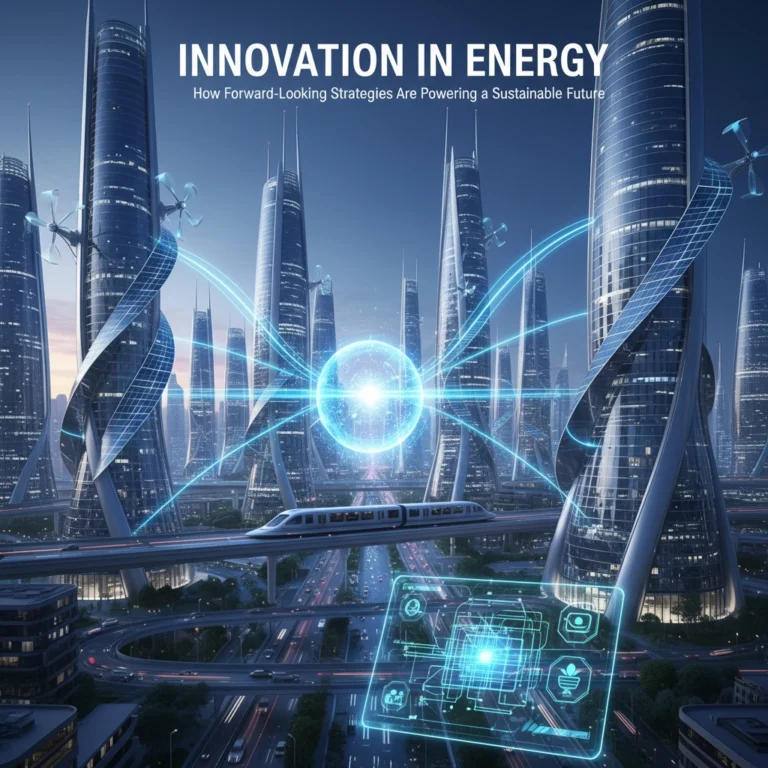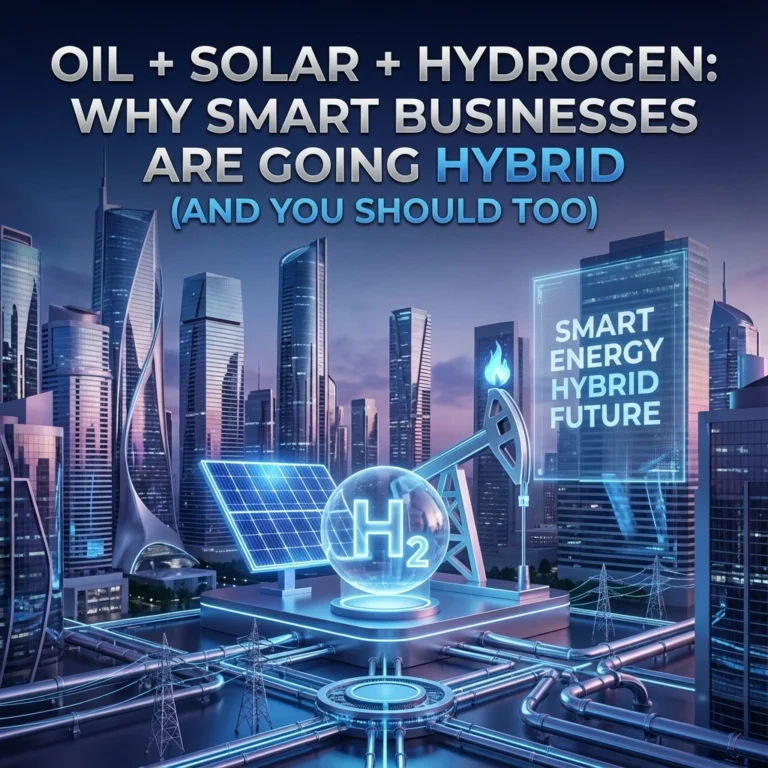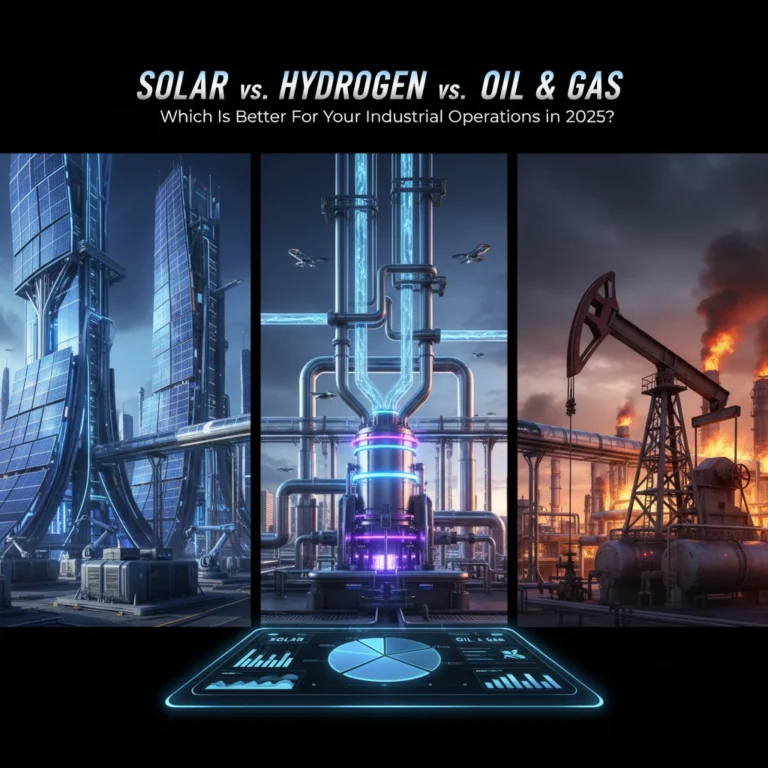Solar Vs Hydrogen Vs Zero-Point Energy: Which Revolutionary Tech Is Right for Your Business?
The energy landscape is evolving faster than ever, and businesses are scrambling to figure out which revolutionary technology will power their future operations. With solar hitting record installation numbers, hydrogen gaining serious momentum, and zero-point energy making headlines, it's time to cut through the hype and get real about what actually works for your business.
Let's be honest – picking the wrong energy strategy could cost you millions and leave you behind competitors who made smarter choices. So which of these three technologies deserves your investment dollars?
Solar Energy: The Proven Powerhouse
Solar isn't exactly new anymore, but it's still revolutionary in how it's transforming business operations. The numbers don't lie: Q1 2025 saw solar representing over 69% of new capacity installations, with commercial solar experiencing its strongest first quarter in history by installing nearly 500 MW.
Why Solar Makes Sense Right Now
The beauty of solar lies in its simplicity and proven track record. Modern photovoltaic panels achieve 15-22% efficiency, and that efficiency keeps improving while costs keep dropping. Plus, the federal Investment Tax Credit (ITC) is offering a solid 30% tax credit for installations – basically free money from the government to go solar.
For businesses, the math is pretty straightforward. After the initial installation, your operating costs are practically zero. The sun doesn't send you a bill, and maintenance requirements are minimal. You can scale from a small rooftop installation to massive utility-scale farms depending on your needs.
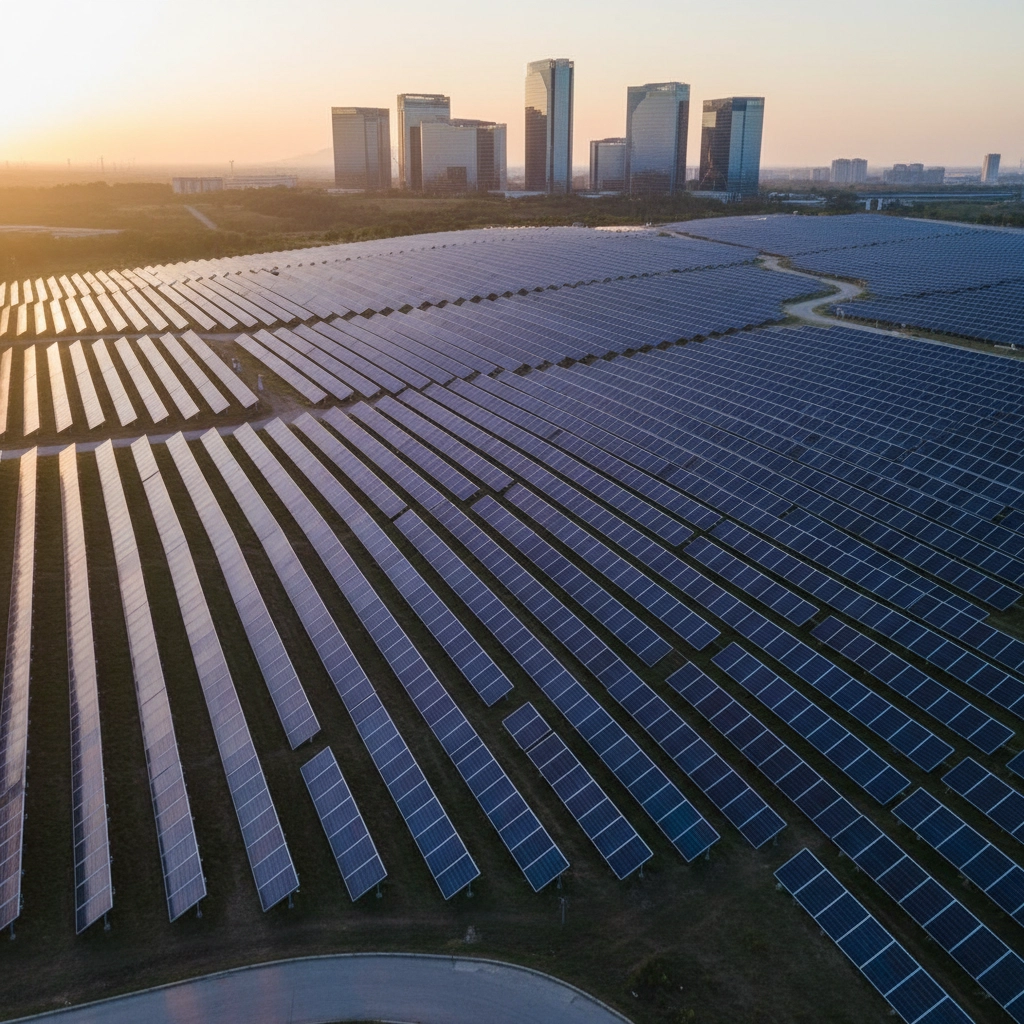
The geographic flexibility is impressive too. While solar obviously works best in sunny regions, the technology has advanced enough that even businesses in traditionally cloudy areas are seeing solid returns on investment. California, Massachusetts, New Jersey, and New York have historically led the charge, but emerging markets across the country are jumping on board thanks to those federal incentives.
The Solar Reality Check
But let's talk about the downsides because they're real. Solar only works when the sun's shining, which means you'll need battery storage systems or grid backup for nighttime operations. Large installations also require significant land – we're talking 5-10 acres per MW for utility-scale projects.
Weather dependency can be a pain too. A few cloudy weeks can put a dent in your energy production, which is why most smart businesses don't go 100% solar without backup systems.
Hydrogen: The Long-Term Storage Champion
Now here's where things get interesting. Hydrogen energy is like solar's sophisticated cousin – more complex, higher potential, but still figuring itself out in the commercial world.
Unlike solar panels that convert sunlight directly to electricity, hydrogen systems work as both an energy carrier and storage solution. Through fuel cells, hydrogen achieves 40-60% efficiency, and here's the kicker – it provides built-in storage capabilities that blow batteries out of the water for long-term applications.
Where Hydrogen Shines
The real magic of hydrogen happens in applications where batteries just can't cut it. Think heavy industry, long-haul transportation, shipping, and aviation. These sectors need serious power for extended periods, and hydrogen delivers.
For businesses, hydrogen's superpower is storage. While solar gives you energy when the sun's up, hydrogen can store that excess solar energy for weeks or even months. It's like having a massive energy bank account that doesn't degrade over time like batteries do.

The versatility is impressive too. Hydrogen works anywhere you have access to water, making it ideal for remote operations or areas where solar might be limited. Plus, it's completely clean – the only byproduct is water vapor.
Hydrogen's Growing Pains
Let's be real – hydrogen isn't cheap. The infrastructure requirements are significant, and the technology is still more expensive than solar systems. You're also looking at specialized equipment for production, storage, and distribution, which means higher upfront costs and more complex maintenance requirements.
The hydrogen market is also still developing, which means supply chains and support services aren't as mature as solar. But that's changing fast as major corporations and governments pour money into hydrogen infrastructure.
Zero-Point Energy: Science Fiction or Future Reality?
Here's where we need to pump the brakes and get real. Zero-point energy sounds incredible – unlimited clean energy from the quantum vacuum itself. It's the stuff of science fiction dreams and YouTube conspiracy videos.
But here's the truth: zero-point energy is not commercially available, period. While it's a legitimate concept in quantum physics describing the lowest possible energy state of quantum systems, no viable technology exists to harness this energy for commercial applications.

Any business considering zero-point energy investments should redirect that budget toward proven technologies. The physics might be fascinating, but your business needs power solutions that actually work today, not theoretical possibilities that may never materialize.
The Real Comparison: Solar vs Hydrogen
Let's break down the practical comparison between the two viable technologies:
Immediate Deployment: Solar wins hands down. You can have panels installed and generating power within months. Hydrogen systems require more planning and infrastructure development.
Operating Costs: Solar takes this category too. Once installed, maintenance costs are minimal and fuel costs are zero. Hydrogen systems have ongoing operational expenses for fuel production and system maintenance.
Storage Capabilities: This is where hydrogen dominates. Solar needs separate battery systems for storage, while hydrogen provides integrated long-term storage that doesn't degrade.
Reliability: Hydrogen systems provide consistent power regardless of weather conditions, while solar depends on sunlight availability.
Scalability: Both technologies scale well, but in different ways. Solar scales through additional panel installations, while hydrogen scales through increased production and storage capacity.
Making the Right Choice for Your Business
For most businesses looking at immediate implementation, solar energy represents the most practical choice. The commercial solar market's record-breaking Q1 2025 performance shows strong business adoption, supported by federal incentives and declining costs.
If your business operates in sunny regions with suitable roof space or land availability, solar solutions offer proven returns and relatively simple implementation.
However, for specialized applications requiring long-term storage or heavy industrial processes, hydrogen systems offer unique advantages despite higher costs. Businesses in transportation, manufacturing, or operations requiring extended power availability should seriously consider hydrogen energy as part of their long-term strategy.
The Smart Money Strategy: Hybrid Integration
Here's the real insider secret – the most successful energy strategies don't pick just one technology. The future belongs to integrated solutions that combine solar generation with hydrogen storage.
This hybrid approach maximizes renewable energy utilization while ensuring reliable power availability. You generate clean electricity during peak solar hours and convert excess energy to hydrogen for use during periods of low solar generation or high demand.
Think of it as building a complete energy ecosystem rather than relying on a single solution. Major corporations are already implementing these hybrid systems, creating resilient, zero-emission energy infrastructure that adapts to changing conditions.
The Bottom Line
Solar energy offers immediate, proven benefits with mature technology and strong financial incentives. It's the safe bet that delivers results today.
Hydrogen energy provides superior storage capabilities and works well for specialized industrial applications. It's the strategic play for businesses planning long-term energy independence.
Zero-point energy remains science fiction and shouldn't factor into any serious business energy planning.
The smartest approach combines solar and hydrogen technologies, creating integrated systems that provide both immediate clean energy generation and long-term storage capabilities. This hybrid strategy positions businesses for energy independence while hedging against future market uncertainties.
Your energy future doesn't have to be an either-or decision. The companies that thrive in the next decade will be those that embrace proven technologies today while building flexible infrastructure for tomorrow's innovations.
Ready to explore what energy solutions make sense for your specific business needs? Contact our team to discuss your options and develop a customized energy strategy that actually works in the real world.

